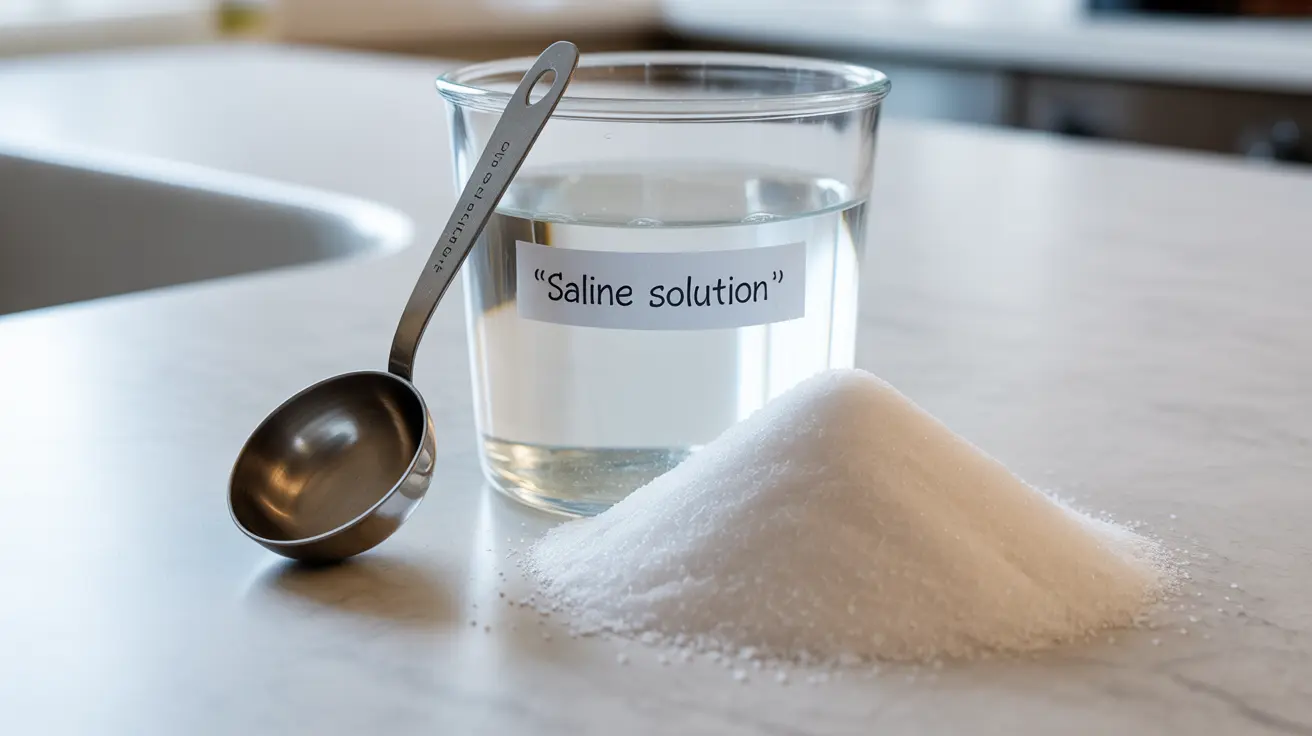Saline solution is a versatile and essential medical preparation that you can make safely at home using simple ingredients. Understanding how to properly prepare and store this solution can save you money while ensuring you have a reliable supply for various health needs. This comprehensive guide will walk you through the process of making saline solution at home, along with crucial safety and storage information.
Understanding Saline Solution Basics
Saline solution is essentially a mixture of salt and sterile water that matches the natural salt concentration in your body's tissues. When properly prepared, it's isotonic, meaning it has the same salt concentration as your cells, making it safe and gentle for various medical uses.
Essential Ingredients and Equipment
To make a safe saline solution at home, you'll need:
- Non-iodized salt or pure sodium chloride
- Distilled or boiled water
- Clean measuring spoons
- Clean glass or plastic container with a tight-fitting lid
- Clean pot for boiling water (if not using distilled water)
Step-by-Step Preparation Method
Sterilizing Your Equipment
Before beginning, thoroughly wash your hands and sterilize all equipment you'll be using. You can sterilize equipment by boiling it for 5 minutes or using a medical sterilization solution.
Making the Solution
The standard recipe for saline solution is:
- 1 cup (240 ml) of distilled or boiled water (cooled to room temperature)
- ¼ teaspoon of non-iodized salt
If using tap water, boil it for at least 5 minutes to sterilize it, then let it cool completely before mixing with salt.
Proper Storage Guidelines
Proper storage is crucial for maintaining the safety and effectiveness of your homemade saline solution. Store it in a clean, airtight container in a cool, dark place. Label the container with the date of preparation to track its freshness.
Safety Considerations and Usage
While homemade saline solution can be used for various purposes, it's important to understand its limitations. For certain medical uses, particularly eye care or contact lens storage, it's safer to use commercial sterile saline solution.
Appropriate Uses for Homemade Saline
- Nasal irrigation
- Wound cleaning (minor cuts and scrapes)
- Gargling for sore throats
- Rinsing sinuses
Frequently Asked Questions
How do I make a safe saline solution at home using common ingredients? Mix ¼ teaspoon of non-iodized salt with 1 cup of distilled or boiled (then cooled) water. Ensure all equipment is clean and sterile before preparation.
What is the best way to store homemade saline solution to prevent contamination? Store the solution in a clean, airtight container in a cool, dark place. Use only sterile containers and avoid touching the solution directly with your hands.
How long can homemade saline solution be kept before it should be discarded? Homemade saline solution should be discarded after 24 hours. For optimal safety, make fresh solution daily or as needed.
Can I use homemade saline solution for nasal rinses, wound cleaning, or eye care? Homemade saline solution is safe for nasal rinses and cleaning minor wounds. However, for eye care, it's recommended to use commercial sterile saline solutions.
What safety precautions should I follow when preparing and using saline solution at home? Always use sterile equipment, wash hands thoroughly, use non-iodized salt, ensure water is properly sterilized, and store the solution correctly. Make fresh solution regularly and discard any unused portion after 24 hours.




